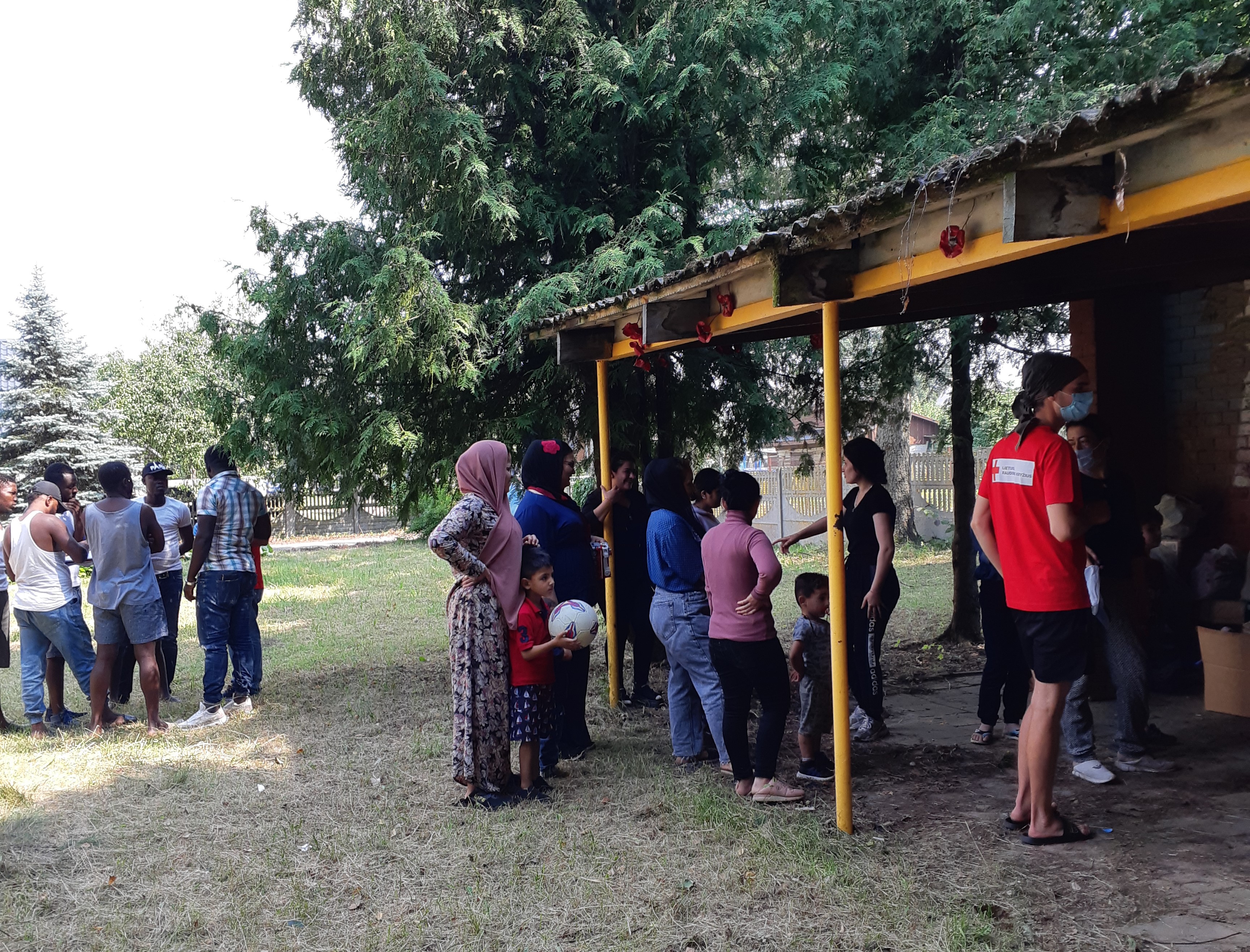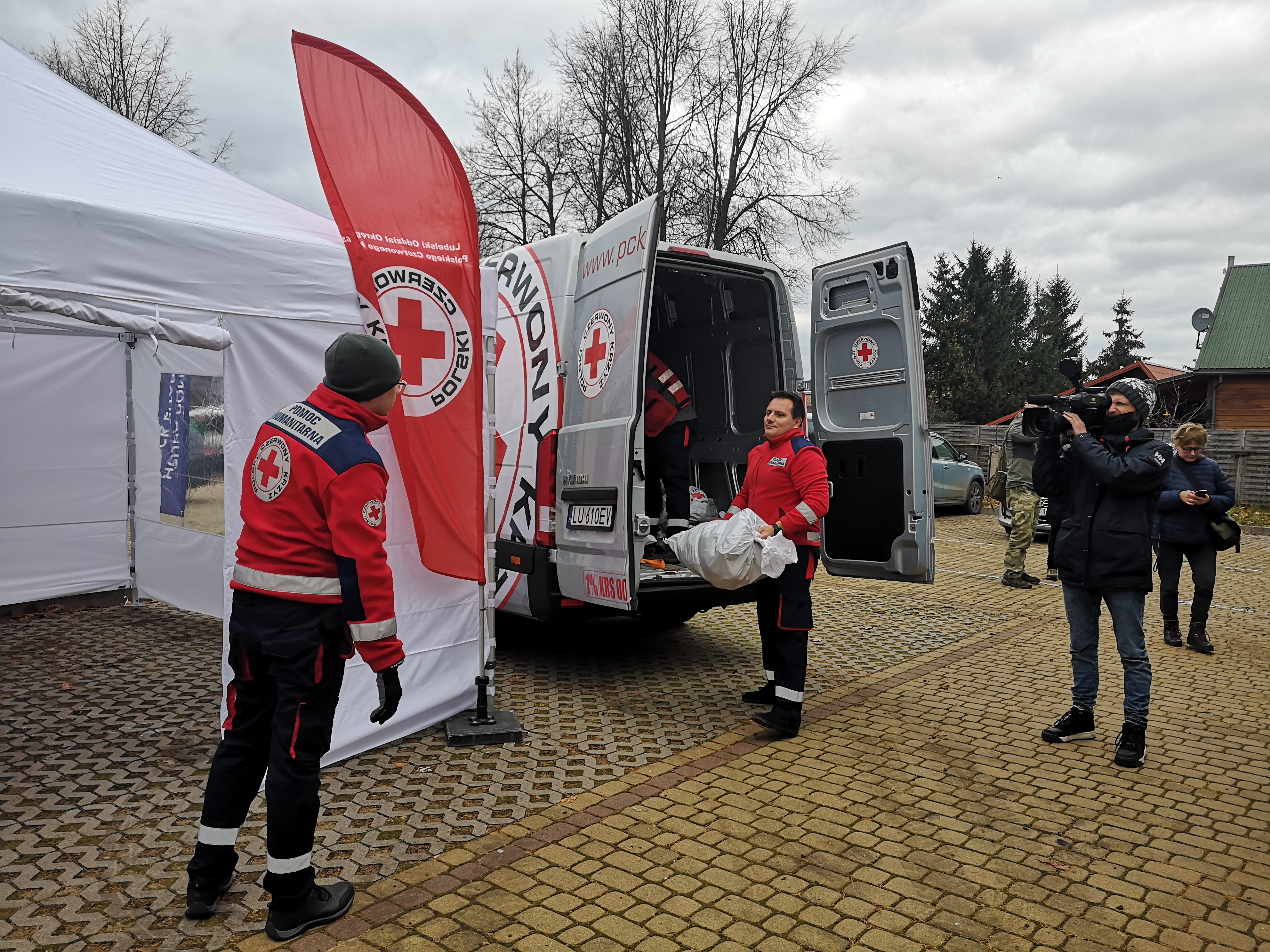The dignity and rights of people must be upheld at the EU’s eastern border
In recent months, another story of human suffering has been unfolding at the EU’s external border. In response to increased numbers of people attempting to cross the border from Belarus, the governments of Lithuania, Poland and Latvia have reinforced border security measures and changed domestic legislation, with serious impacts on the lives, dignity and rights of migrants. In addition, humanitarian actors in Poland, including the Red Cross, continue to experience limited or irregular access to border zones, preventing them from delivering life-saving services and protection work.
People trying to reach the EU have been enduring dire conditions. Most have been left in limbo at European borders, without access to shelter, food or water – these vulnerabilities will only increase as freezing temperatures set in. Oftentimes, people have also been exposed to arbitrary detention upon their arrival, contrary to international refugee law which prohibits the penalisation of irregular entry or presence for the purpose of seeking international protection.
So far, the EU’s response has been characterised by preventing further migrants arrivals to its eastern border and reinforcing border management capacities. Recent developments which see the European Commission triggering emergency measures in the areas of asylum and return that allow derogations from EU law are extremely worrying and risk setting a harmful precedent. The focus needs to urgently shift to putting human beings first and ensuring respect for their fundamental rights, in line with EU values and international obligations.

Humanitarian funding provided by the EU is a valuable contribution to addressing the needs of people stranded at the border on the Belarus side. However, this approach must be combined with the implementation of EU Member States’ commitments under EU asylum law. As some countries call for even stricter border controls and more fences to be built, the EU should swiftly reaffirm the centrality of human rights in its external relations by prioritising solidarity, rather than shedding responsibility and avoiding migrant arrivals at all costs.
Access to asylum must be guaranteed at all times, including at EU borders. EU law is clear: the jurisdiction of states stretches across their borders and applies to border officials conducting border checks. Shockingly, migrants are being systematically rejected at the borders with Belarus and quickly returned to third countries without an individual examination of their protection claims – practices which put people are risk and disregard government obligations under the European Convention of Human Rights. States have a duty to offer genuine and effective opportunities for asylum seekers to lodge their claims. They should do guarantee dignified conditions, while ensuring that detention remains a measure of last resort.
The principle of non-refoulement is an essential protection under international law and an absolute human right. It should not be undermined under any circumstances. The EU’s approach risks further eroding protection standards and normalising measures taken by Member States during the COVID-19 pandemic and following the situation at Greek-Turkish border in March 2020, which are incompatible with EU asylum rules. The European Commission’s proposal for a new crisis mechanism under the Pact on Migration and Asylum contributes to this trend by increasing the possibilities for Member States to derogate from EU asylum rules. Likewise, focusing EU diplomatic efforts on return without providing access to fair and efficient asylum procedures, is likely to have detrimental effects on migrants’ rights and wellbeing. In a situation where people are encouraged to return from the very moment they arrive at the borders, it is hard to envisage a way in which the conditions necessary for voluntary return are guaranteed. Namely that it is conducted safely and with dignity, in full compliance with fundamental rights and the principle of non-refoulement, while ensuring sufficient time so that migrants can consider their choices and needs.

Humanitarian access cannot be compromised. As an outcome of the tightened controls, humanitarian actors are prevented from providing aid in certain border areas. As a result, many migrants are experiencing extreme destitution and acute health problems. Tragically, more than ten people are thought to have died as temperatures plumet to below freezing. At the same time, EU and Member States leaders referring to migrants as threats reinforces their criminalization and questions the work of those assisting them.
National Red Cross Societies are providing critical support, including relief materials, where access to borders zones is possible. At the same time, they are supporting migrants in camps or centres outside of the border zones through a wide range of services such as first aid, restoring family links, psychosocial support, and information about asylum procedures. However, they are still facing difficulties in reaching out to migrants, especially in the declared emergency zones, and hence are prevented from fulfilling their humanitarian mandate and acting in accordance with their fundamental principles.
The EU has a duty of solidarity vis-à-vis people in need. Yet, its current approach to migration management is contrary to fundamental rights and the Union’s founding values. Many of the people trying to reach safety at Europe’s eastern borders come from volatile countries, like Iraq, Syria or Afghanistan, possibly fleeing serious peril. In the absence of meaningful safe pathways to protection, solidarity is essential to avoiding peoples’ exposure to ill-treatment in their countries of origin. However, EU leaders seem excessively focused on avoiding further spontaneous arrivals above all else. With a view to living up to their obligations as prescribed in EU treaties, EU Member States should consider relocating protection seekers to their territories, including vulnerable individuals and those with family members in the country. At the same time, pursuing a humane dialogue with countries of origin and transit that addresses the dire humanitarian situation faced by migrants on their way to Europe remains crucial.
Time is of essence for migrants at the EU’s eastern borders. All actors must pursue the many ways towards durable solutions for migrants in need. First of all, the EU and Member States should avoid further eroding EU asylum rules and provide access to fair and efficient procedures to the people stranded at their borders. Secondly, humanitarian actors responding to the dire situation faced by migrants have to be enabled and supported. Finally, Europe must embrace solidarity towards protection seekers and send a clear signal that the EU’s humanity stems from its founding values and commitment to human rights.
For media inquiries, please contact Eva Oyón on: eva.oyon@redcross.eu or +32 2 235 09 22

